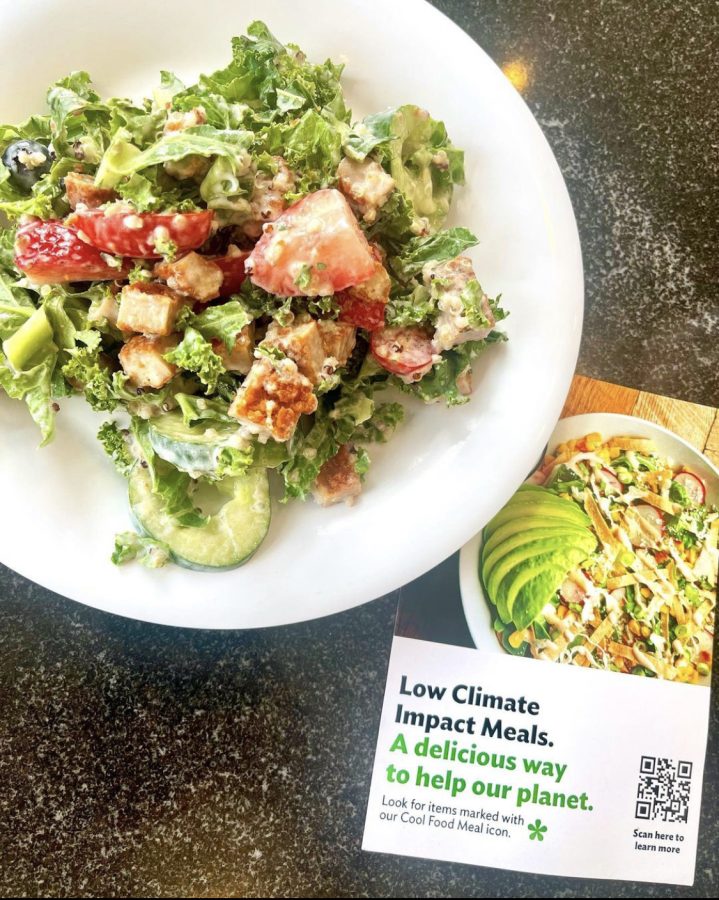Fordham Introduces New Sustainable Dining Program
On Nov. 2, Fordham Dining announced on their Instagram that they were initiating a new sustainability program in both the Marketplace at Rose Hill and Community Dining at Lincoln Center. The program, “Cool Food Meals,” is an organization that aims to reduce the climate impact of food. “Cool Food” icons located above dishes will indicate that the food is climate friendly.
According to the World Resources Institute (WRI), meals certified as a Cool Food meal have a low carbon footprint. WRI calculates the carbon footprint of Aramark recipes by analyzing the agricultural supply chain and land used to produce the meal.
Meals whose carbon footprint falls below an established per-meal threshold, as well as meet nutritional standards, are certified as a Cool Food meal.
In June 2021, Aramark announced that it was the first food service company in the United States to sign WRI’s Cool Food Pledge.
Rachel Diaz, marketing manager for Aramark, said, “The purpose of this program is to offer meals that have a lower carbon footprint as a result of the way they are produced and the ingredients they are composed of. Cool Foods makes it easy for students to identify and choose climate-friendly meals which in turn will help the planet one plate at a time.”
Dishes that qualify as a Cool Food Meal are marked with a Cool Food badge so that students can easily identify Cool Food meals within their dining halls. The Cool Food Meals badge will appear on over 350 menu items. Some examples of Cool Food Meals that will be available at both campuses are Mediterranean Falafel Plate, Five Spice Sesame Tofu Salad Bowl, Shawarma Chicken Ciabatta and Spinach Artichoke Panini. Cool Food meals are the newest addition to Fordham’s previous commitments to the environment and stability such as Babylon, a micro-farm display and the 100% waste free Lincoln Center campus.
“From LED lighting installed years ago, to reduction of food waste and being 100% waste free at the Lincoln Center campus. Every project we do includes a review of how to move forward on this initiative,” said Diaz.
“Fordham’s commitment to sustainability began in 2007 as an early participant in the NYC Carbon Challenge program and has been supportive of other programs that can reduce the use of carbon on our campuses. What is exciting about the Cool Foods program is its potential beyond our borders to encourage a shift towards more environmentally-sensitive forms of food production,” said Vincent Burke, director of sustainability at Fordham in the Cool Food meals official press release.
Diaz said, “It’s important to take this step because climate has an effect on our everyday lives and our future. Being able to implement programs where we can reduce our impact on the environment and improve our sustainability efforts is a goal of ours.”
“In keeping with the Jesuit traditions of the pursuit of wisdom and learning, education of the whole person, and respect for the environment, the university recognizes the value of minimizing its environmental impact and endeavors to pursue best practices throughout all aspects of its activities,’” said Diaz. “Through this new initiative, our hope is to empower students to make their own sustainable decisions and do their part in helping our planet.”

Sofia Donohue is a senior from Kensington, Md., who is majoring in English with a double minor in history and Italian. She first joined the Ram as a digital...










































































































































































































